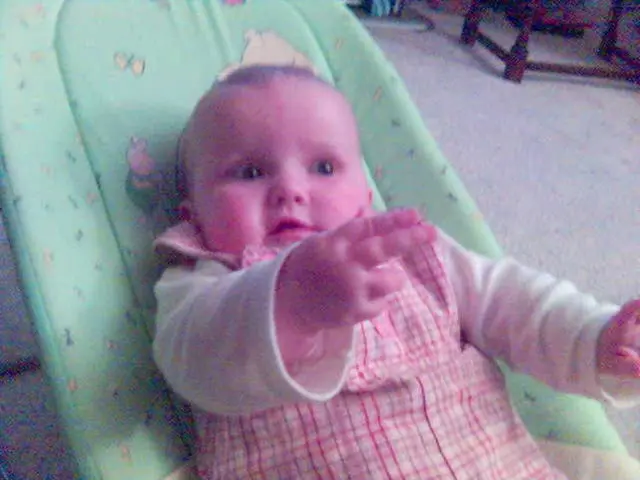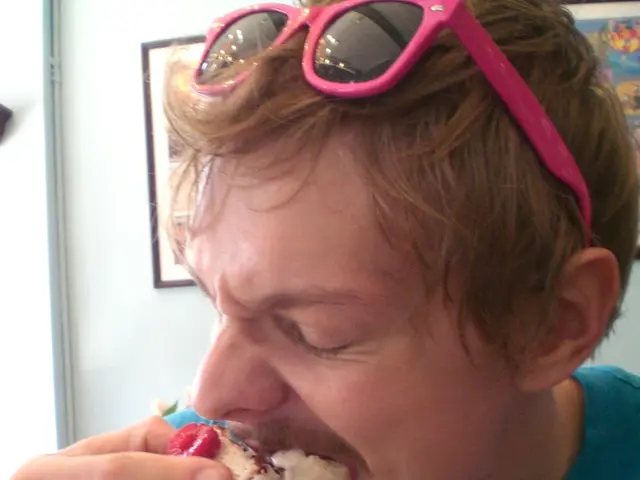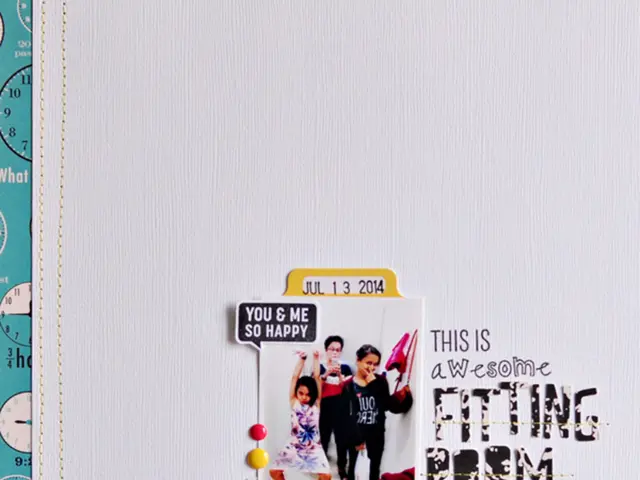Is It Possible for Cats to Develop Down Syndrome?
** Down and Out with Kitty: Feline Genetics and You**
Approximately 6,000 babies in the United States are born annually with Down syndrome, a chromosomal condition marked by specific traits such as cognitive challenges and physical peculiarities. But if you're a cat parent, you might be wondering if your furry friend can contract Down syndrome too. Let's unravel this purr-plexing question and delve into what may be behind your cat's unique quirks.
Down Syndrome Demystified
Down syndrome arises when there's an error during cell division, causing an extra copy of Chromosome 21 in humans. This condition, scientifically known as Trisomy 21 or nondisjunction, disrupts how genetic information is decoded, leading to various cognitive and physical anomalies.
Individuals with Down syndrome show a range of abilities and personalities, much like the general population. Common features associated with the condition include learning difficulties, slower speech, a flattened face, slanted eyes, small ears, low muscle tone, and shorter stature.
The Feline Take: Can Cats Have Down Syndrome?
The answer is a resounding no. Cats can't have Down syndrome in the same way humans do. This is because felines have just 19 pairs of chromosomes, compared to our 23 pairs. Thus, they can't have Trisomy 21.
However, cats can carry specific genetic mutations that may lead to traits resembling those found in people with Down syndrome. For instance, the mutation linked to the UDP-glucose 6-dehydrogenase (UGDH gene) gene causes the shortened legs in the Munchkin cat breed.
If It's Not Down, What Could It Be?
While cats don't have Down syndrome, some felines exhibit characteristics that might be confused with the human condition. So, what's behind these traits? Here are some possibilities that warrant a chat with your vet.
Genetic Conundrums: Cerebellar Hypoplasia, Hydrocephalus, and Seizures
Silent infections like distemper virus infections or defects can cause issues like cerebellar hypoplasia (failure of the cerebellum to fully develop in the brain) or hydrocephalus (an enlarged head due to fluid buildup in the brain). These conditions can lead to symptoms resembling Down syndrome, such as mental dullness, uncoordination, and neurological symptoms.
Accidents and Toxins: The Unseen Perils
A young feline accident can lead to injuries, causing head or face trauma that can, in turn, affect their appearance and coordination. Additionally, exposure to toxins like lead, insecticides, and certain foods (like grapes, chocolate, and lilies), can result in neurological symptoms, lethargy, and weakness, which might resemble Down syndrome.
Dysautonomia and Eye Conditions: The Hidden Culprits
Dysautonomia (degeneration of nerve cells) and conditions like eyelid agenesis (a birth defect causing a flattened face or almond-shaped eyes) or strabismus (crossed eyes) can also produce symptoms similar to Down syndrome, making your kitty appear clumsy or exhibit a broad face and poor muscle tone.
Feline-Tailed Woes: When Genes Go Awry
Although cats can't have Down syndrome, they can have genetic mutations that cause health issues. For instance, certain breeds like Burmese cats may have a genetic mutation that causes a malformed skull and face, leading to various complications. Thankfully, genetic tests are available to identify carriers of this abnormality, ensuring that they aren't used for breeding.
Wrapping it Up
While cats can't have Down syndrome, they can still have unique genetic conditions that may manifest in physical or behavioral quirks. If you suspect something is amiss with your cat, always consult a veterinarian. It's essential to remember that caring for our feline friends involves knowing their genetic makeup, spotting the signs of potential health issues, and offering them the best possible care.
- Occasionally, cats may carry genetic mutations that mimic some characteristics found in individuals with Down syndrome, such as shortened legs in the Munchkin cat breed, which is linked to a mutation in the UGDH gene.
- Apart from genetic mutations, various neurological disorders and health conditions in cats can exhibit symptoms similar to Down syndrome, including cerebellar hypoplasia, hydrocephalus, seizures, dysautonomia, and eye conditions like eyelid agenesis and strabismus.
- If you observe any unusual traits or behaviors in your cat resembling those found in Down syndrome, it's crucial to consult with a veterinarian, who may suspect underlying medical conditions or genetic abnormalities requiring appropriate care and attention.








